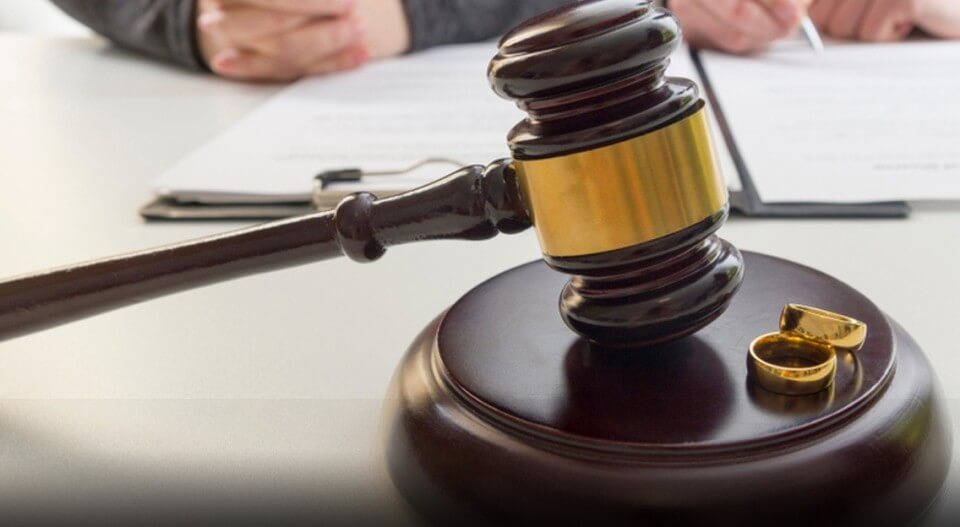المدونة القانونية
المتطلبات والشروط القانونية للزواج في دولة الإمارات

سنحاول في هذا المقال الإجابة على بعض الأسئلة التي يطرحها المقيمون في الإمارات حول زواج الوافدين وشروطه المطلوبة.
الشروط العامة
الشروط العامة الأساسية للزواج للوافدين (غير الإماراتيين) في دولة الإمارات العربية المتحدة هي كما يلي:
- تستغرق الأعمال الورقية حوالي 4 أسابيع
- يجب أن يكون كلا الطرفين وقت الزواج قد أكمل سن 18 عامًا.
- شاهدان مع إثبات الهوية.
زواج المغتربين المسلمين
هناك أيضًا شروط ومتطلبات للمغتربين المسلمين لإبرام وثيقة زواج وفقًا للشريعة (القانون الإسلامي):
- يجب أن يكون كلا طرفي الزواج مسلمين.
- إذا كان أحد الطرفين غير مسلم، فيجب تقديم ما يثبت اعتناقه الإسلام.
- تأشيرة الإقامة القانونية في الإمارات العربية المتحدة أمر لا بد منه لكل من العروس والعريس. فقط في دبي يجب أن يحصل أحد طرفي الزواج (الزوجة أو ولي الزوجة أو الزوج) على تأشيرة إقامة.
- والد العروس. في حالة غيابه، يجب أن يحضر وصي العروس أو محاميها مع طرفي الزواج في المحكمة.
- شاهدين مسلمين.
- شهادات الميلاد لكلا الطرفين.
- جوازات السفر وصور من طرفي عقد الزواج.
- جوازات السفر ونسخ منها.
- إحضار شهادة فحص ما قبل الزواج وفحص الدم من وزارة الصحة.
- في حال كان أحد الزوجين أو كلاهما مطلّقَا، فيجب إحضار أوراق الطلاق وشهادات الزواج السابقة أو
- في حال كان أحد الطرفين أرملًا، شهادة وفاة الزوج السابق.
زواج الإماراتيين
الشروط الأساسية لزواج مواطني دولة الإمارات (وفق الشريعة الإسلامية) هي:
- كلا طرفي الزواج مسلمان
- إذا كان أحد الطرفين غير مسلم، فيجب تقديم ما يثبت اعتناقه الإسلام.
- يجب تسجيل الزواج في محكمة شرعية بدولة الإمارات العربية المتحدة.
- أن يكون قد أكمل طرفا الزواج 18 سنة هجرية وإلا فيشترط موافقة القاضي.
- يجب ألا يكون عمر الزوج ضعف عمر الآخر؛ وإلا فإن موافقة القاضي مطلوبة.
- مطلوب شهادة فحص ما قبل الزواج.
- مطلوب والد العروس مع الزوجين وشاهدين مسلمين.
- يشترط حضور أقرب ولي من الذكور في حالة وفاة الأب.
- في حال كان أحد الطرفين أرملًا، فيشترط شهادة وفاة الزوج السابق.
- إذا لم يكن والد العروس مسلمًا، فيجب تقديم رسالة "عدم ممانعة" من سفارتها.
هناك سلطات محددة مسؤولة عن إجراء الزواج طبقًا للشريعة الإسلامية. تتم هذه الزيجات من خلال المحاكم الشرعية أو الدوائر القضائية الإماراتية أو بواسطة مأذون (كتاب عقد الزواج من رجال الدين) في الإمارات العربية المتحدة.
زواج غير المسلمين
شروط زواج غير المسلم في الإمارات هي:
- يجب أن يخطط الطرفان للزواج في الكنيسة أو في سفارة كل منهما أو قنصلية دولتهما في الإمارات العربية المتحدة.
- قد تطلب أي دولة من مواطنيها تقديم طلب زواجهم في سفارتهم أو قنصليتهم في الإمارات العربية المتحدة ومعالجته وفقًا لذلك.
- أن يكون الزواج مسجلا في سفارات الطرفين في الدولة.
- قوانين الزواج القابلة للتطبيق حسب قوانين بلدهم.
- كلا الطرفين مطالب بالحصول على تأشيرة إقامة. في حالة امتلاك أحد الطرفين تأشيرة زيارة، فيجب عليه / عليها الخضوع لفحص طبي قبل الزواج في الإمارات.
حالات خاصة
هناك أيضًا بعض الحالات الخاصة حيث توجد متطلبات معينة:
- حال زواج الإماراتية (غير مجنسة) من أجنبي، فيجب أن تحصل المرأة على موافقة والديها أو ولي أمرها. يجب أن يكون الرجل (الوافد) مقيماً بصورة قانونية في دولة الإمارات العربية المتحدة وأن يقدم شهادة حسن السيرة والسلوك صادرة من السلطات الإماراتية.
- إذا رغب مواطن من دول مجلس التعاون الخليجي أو مواطن من دول إسلامية أخرى في الزواج من طرف آخر، فيجب أن يكون لديه موافقة من بلده.
- يجب على الأجانب الذين يرغبون في الزواج من إماراتيين أن يحصلوا على شهادة حسن السيرة والسلوك صادرة من السلطات الإماراتية.
- لا يسمح للمرأة الإماراتية التي حصلت على الجنسية بالتبعية بالزواج من أجنبي.
الخاتمة
- هناك دائمًا حاجة للنظر في قوانين البلد الأم أو سفارة الدولة إذا كان طرفا الزواج من جنسيات مختلفة، حيث توجد شروط قانونية مختلفة مطلوبة لكي يكون الزواج ساريًا.
- الزيجات التي تتم في دولة الإمارات العربية المتحدة أو في كنيسة أو معبد في الإمارات العربية المتحدة، يجب تسجيلها في محكمة الإمارات العربية المتحدة المعنية. خلاف ذلك، لن يتم الاعتراف بالزواج في دولة الإمارات العربية المتحدة أو في أي دولة أخرى.
- يتم تسجيل الزواج في المحكمة تلقائيًا في الإمارات العربية المتحدة.
- لكي يتم الاعتداد بالزواج الذي أبرم في دولة أخرى فيجب إحضار شهادة زواج رسمية من هذه الدولة معتمدة من دولة الإمارات، ويجب أن تكون شهادة الزواج مصدقة من مكتب الأجانب وسفارة الإمارات العربية المتحدة.
- يجب على طرفي الزواج الحصول على وثيقة زواج باللغة العربية. في حال كانت باللغة الإنجليزية، يجب الحصول على شهادة مترجمة إلى اللغة العربية من قبل مترجم رسمي، ثم يجب بعد ذلك اعتمادها من كاتب العدل في المحكمة في دبي.
- يجب أن تخضع الشهادة للمصادقة من قبل وزارة العدل (MoJ) ووزارة الخارجية (MoFA) على التوالي. علاوة على ذلك، من أجل المصادقة على الشهادة لصلاحيتها في بلدهم، فسيحتاج المرء إلى زيارة سفارة بلده والحصول على مصادقة وزارة الخارجية للتحقق من استخدامها في بلده.
- يمكن منح رخصة الزواج الإماراتية عند دفع الرسوم المطلوبة مع المستندات المطلوبة، على الرغم من أن المصادقة مطلوبة من قبل كل من وزارة العدل ووزارة الخارجية.
- يمكن رفض الزواج بناء على شهادة فحص طبي إذا كان أحد المتقدمين للزواج يعاني من أي مرض قابل للانتقال أو مرض دم وراثي.
- بموجب قوانين دولة الإمارات العربية المتحدة، يحظر على جميع المواطنين والمقيمين المساكنة بغض النظر عن دينهم أو جنسيتهم.
- بموجب قوانين دولة الإمارات العربية المتحدة، يُسمح بتعدد الزوجات.
كتب بواسطة:
عبد الواحد محمد شريف | دار الحق للاستشارات القانونية
لا توجد حاليًا معلومات لعرضها في هذا القسم.

هذا المنشور لعرض المعلومات العامة فقط، ولا يهدف لتقديم استشارة قانونية شاملة أو أي نوع آخر من الاستشارات.
لا تتحمل شركة ليجال أدفايس ميدل إيست والمساهمون مسؤولية أي خسائر قد تنجم عن الاعتماد على المعلومات المذكورة في هذا المنشور. هذا المنشور يهدف فقط إلى الإشارة إلى المسائل القانونية التي تحتاج إلى طلب الاستشارة بشأنها.
لا بد من الحصول على استشارة قانونية شاملة في الوقت المناسب من خلال محامٍ كفء عند التعامل مع مواقف معينة.
